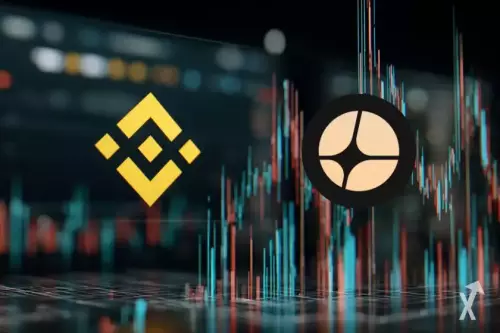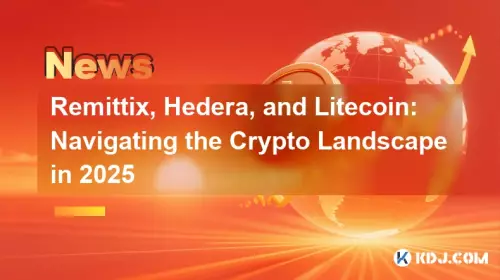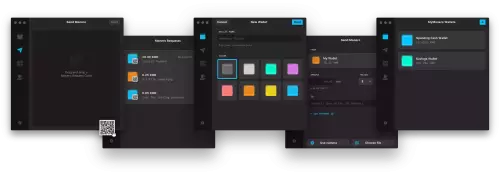 |
|
 |
|
 |
|
 |
|
 |
|
 |
|
 |
|
 |
|
 |
|
 |
|
 |
|
 |
|
 |
|
 |
|
 |
|
Cryptocurrency News Articles
fic advisory board consists of world-renowned longevity scientists, including Dr. David Sinclairoutput: title: Decentralized Science (DeSci): Redefining Scientific Research Through Transparency, Openness, and Fairness
Dec 13, 2024 at 07:22 pm
As an innovative application of Web3 technology in the field of scientific research, DeSci is solving the core pain points in traditional science (TradSci)

scientific committee consists of experts in longevity science, biomedicine, and Web3 technology, who provide professional guidance and support for scientific research project selection and evaluation.
As a decentralized scientific research organization, VitaDAO combines the strengths of Web3 technology and the longevity science community to efficiently allocate funds and support promising research projects. Through the VitaDAO platform, a total of 11 scientific research projects have been funded so far, covering research directions such as aging biology, longevity biomarkers, and senolytic drug development. Among them, the research project on aging biology and longevity biomarkers has received strong support from the community and obtained a total funding of more than 2.2 million US dollars. In addition, VitaDAO also provides intellectual property management services for funded projects, aiming to maximize the commercial value of scientific research results and promote the development of longevity science.
Sci-Hub
Sci-Hub is a non-profit shadow library that provides free and illegal access to millions of research papers and academic articles, bypassing publisher paywalls. Founded in 2011 by Alexandra Elbakyan, a Kazakhstani neuroscientist, Sci-Hub has faced numerous legal challenges and controversies over the years. However, it remains a popular resource for researchers, students, and the general public in countries with limited access to scientific literature.
Sci-Hub's operating principle is simple: users enter the DOI or PMID of the desired article into the Sci-Hub website or Telegram bot. If the article is available, Sci-Hub will automatically download and deliver it to the user. This process usually takes a few seconds to complete. Sci-Hub obtains articles from various sources, including university libraries, institutional repositories, and individual researchers who share their copies of articles.
Sci-Hub's activities have sparked heated debate within the academic and publishing communities. Supporters argue that Sci-Hub promotes the free flow of scientific knowledge and makes research accessible to all, regardless of their ability to pay or geographical location. They also point out that Sci-Hub does not host any copyrighted materials and that its activities fall under the fair use doctrine.
Critics, on the other hand, maintain that Sci-Hub engages in large-scale copyright infringement and undermines the financial viability of scientific publishers. They argue that publishers play a crucial role in the dissemination, peer review, and preservation of scientific knowledge and that Sci-Hub's actions threaten the sustainability of these services.
Despite the legal challenges and controversies, Sci-Hub continues to operate and remains a valuable resource for many researchers and students around the world. Its impact on the accessibility and dissemination of scientific knowledge is undeniable, and it is likely to remain a topic of discussion and debate for years to come.output: DeSci, short for decentralized science, is a new scientific research model that integrates blockchain technology with scientific research. It aims to solve the problems of traditional scientific research, such as concentrated resources, opaque management, and limited knowledge dissemination, and build a more transparent, fair, and open scientific research ecosystem.
As an emerging field, DeSci has attracted attention from various parties due to its innovative concepts and potential to disrupt traditional scientific research. However, due to the early stage of development and the particularity of scientific research, DeSci also faces challenges in terms of market liquidity, scientific research feedback loops, and mainstream narrative.
DeSci's strengths lie in its ability to break down barriers in scientific research funding, improve research accessibility and transparency, encourage wider community participation and collaboration, and provide new governance and funding models for scientific research. Just as the open source software revolution has changed the landscape of technology development, DeSci is also expected to become the "open source movement" in the field of scientific research, carrying the vision of fair distribution of resources and becoming an accelerator of scientific democratization, returning the future of scientific research to the global community.
DeSci's methods and use cases mainly include:
1. Fairness and decentralization of fund allocation: DeSci uses a secondary donation mechanism and decentralized autonomous organizations (DAOs) to achieve transparent management and distribution of funds through smart contracts. This mechanism not only lowers the threshold for researchers to obtain funds but also provides support for innovative and diverse scientific research projects and promotes the fair allocation of global scientific research resources.
2. Openness and security of data and publications: DeSci stores scientific research data and publications on a public ledger through a decentralized research repository based on blockchain, ensuring that the results are traceable and transparent. Smart contracts provide a fair distribution mechanism for data access, enabling researchers and institutions to share and use key data resources while protecting intellectual property rights.
3. Promoting the reproducibility of scientific research, in which validation experiments and data reproducibility are crucial. DeSci rewards reproducible research practices by introducing token incentive mechanisms and reputation systems. Blockchain-based smart contracts also support a transparent peer review process to ensure the reliability and authenticity of scientific research findings.
DeSci's four major use cases in practice include decentralization of academic publishing, transparent management of research funding, innovative models for data sharing and collaboration
Disclaimer:info@kdj.com
The information provided is not trading advice. kdj.com does not assume any responsibility for any investments made based on the information provided in this article. Cryptocurrencies are highly volatile and it is highly recommended that you invest with caution after thorough research!
If you believe that the content used on this website infringes your copyright, please contact us immediately (info@kdj.com) and we will delete it promptly.





























































